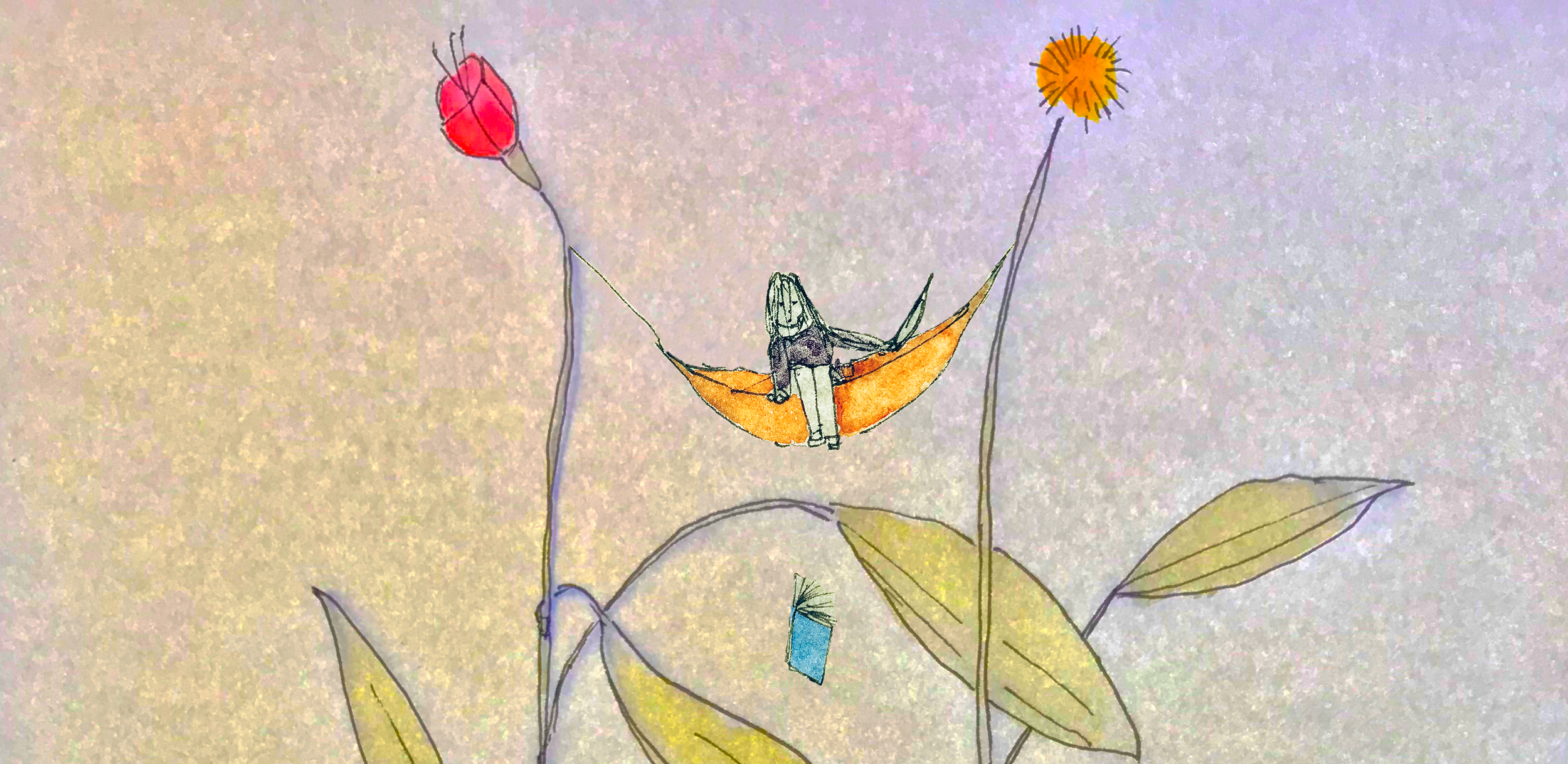Nupur Shah
Figure with Landscape and Wind (as painted by Snehal Vadher)
I was
when I looked at you-- when?--
outside with the other worlds
—Paul Celan
language is solitude and seepage and
passing through the heart's burningness I too
have studied the slightest air
that giddy atmospheric of light waved
like uncertain curtains
billowing across roomful of mountains
reclining ruggedly against the horizon
I have seen the sky lurch ahead
as if hungry for more
space where there was no space
or an appetite for alive
you call poetry that loudest of whispers
uttered forth by distantly possible birds
where birds of distant possibilities
breath us and break us into alveoli
sized epiphanies
in the darkness of their bright hue
we choose
(from a fiction of feelings)
the word present
presently coming and presently going
through everything ever present
in the private gravity of our wounds
how they ripple like sulphur
in the wind where we are
mostly naked barely bandaged
by desire's green leaves we seek
the time that splits us
into man from woman
into a face averted
from the fangs floating underneath
into the difference we redeem
when I loves the other
how everything rises
from the navel of a poem
blowing nuggets of nostalgia
like a cloudream drip by drip
passing over your verses
they have summerred towards me
from your Himalayan heights
to my traffic jammed streets
I have read you in the heart
of a lonely city
all the lines running aslant
saying hello to cigarettes and hello to flowers
all blue on my tongue busy
peeling off language
sucking searing life
down to its rusty rinds
_____
Statement of Homage
The first feeling that mazed through my mind when I came across the three poems of Snehal Vadher in POETRY Magazine from which this afterwork is influenced, was the pleasure of paradox.
For example, the gorgeously titled “Figures in a windswept language” (which I deconstructively regenerated to procure my own title) begins with “As if what I wanted to say most/would be lost in the saying,” nothing specific is said, except that what is conveyed is a specific imagery that gives way or rather emerges out of a very vaguely precise feeling.
Beckett, in a manuscript of one of his plays, coined the verb "vaugening": this is the process Vadher's/the reader's emotions undergo in the course of becoming present to his poems, which are all loose, verbal, constructions revolving around a tightly described natural imagery. Hence, the syntax most preferred by him is of the run-on line, which contributes to the mixing up of metaphor and mood that results in an aesthetic that demarcates only to dissolve the border between inside and outside, self and world, natural and constructed.
All this is just to say how a “broken syntax” best expresses the “felt unity” of being.
“Beauty is brief and violent” begins another poem that directly inspired the first line of this afterpoem. Vadher's fluidity of imagery coupled with a directness of declaration masterfully conceals a depth of thought in seeming so natural. This paradox arose as a challenge to me who likes to (needs to) work with a critical/ conceptual framework in order to create a work that may or may not successfully transmit the intelligible thought behind it.
Since Verse of April is a (unique) opportunity to pay off homages, I figured I could weave into this poem the complex issue of influence which is the hidden idea behind this poem. For it is towards the line “I have read you” (in the heart) that the whole poem builds, even as it is writing about the way “you” has been read and is now being converted into the (lyrical) “I;” this is a process that necessarily entails creating a difference, one that is manifested via a movement away even as a coming closer takes place: the central pleasure and paradox of aftercreation or creating after that I hope to hint at through the epigraph, where Celan speaks for me as much as for the work called a poem which he elsewhere defines as "a lived language."
Snehal Vadher
Snehal Vadher lives in a Himalayan town where he teaches English to schoolchildren.
He has studied Comparative Literature and Creative Writing at universities in the UK.
He was awarded the Charles Wallace Fellowship for Creative Writing in 2014.
____
Nupur Shah lives in Mumbai, India, where she is studying for a Master's in English.

